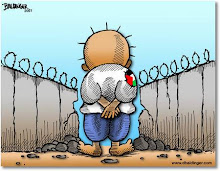The longest word to occur in both English and American "authoritative"
"pneumonoultramicroscopicsilicovolcanoconiosis"
The following is a brief citation history of this "word."
New York Herald Tribune, February 23, 1935, p. 3
"Pneumonoultramicroscopicsilicovolcanokoniosis succeeded
electrophotomicrographically as the longest word in the English
language recognized by the National Puzzlers' League at the opening
session of the organization's 103d semi-annual meeting held yesterday
at the Hotel New Yorker.
The puzzlers explained that the forty-five-letter word is the name of a
special form of silicosis caused by ultra-microscopic particles of
siliceous volcanic dust."
Everett M. Smith (b. 1/1/1894), President of NPL and Radio News Editor
of the Christian Science Monitor, cited the word at the convention.
Smith was also President of the Yankee Puzzlers of Boston.
It is not known whether Smith coined the word.
"Bedside Manna. The Third Fun in Bed Book.", edited by Frank Scully,
Simon and Schuster, New York, 1936, p. 87
"There's been a revival in interest in spelling, but Greg Hartswick,
the cross word king and world's champion speller, is still in control
of the situation. He'd never get any competition from us, that's
sure, though pronouncing, let alone spelling, a 44 letter word like:
Pneumonoultramicrosopicsilicovolkanakoniosis,
a disease caused by ultra-microscopic particles of sandy volcanic dust
might give even him laryngitis."
It is likely that Scully, who resided in New York in February 1935,
read the Herald Tribune article and slightly misremembered the word.
Supplement to the Oxford English Dictionary, 1936
Both "-coniosis" and "-koniosis" are cited.
"a factitious word alleged to mean 'a lung disease caused by the inhalation
of very fine silica dust' but occurring chiefly as an instance of a very long
word."
Webster's first cite is "-koniosis" in the addendum to the Second Edition.
The Third Edition changes the "-koniosis" to "-coniosis."
I conjecture that this "word" was coined by word puzzlers, who then
worked assiduously to get it into the major unabridged dictionaries
(perhaps with a wink from the editors?) to put an end to the endless
squabbling about what is the longest word.

<< Home